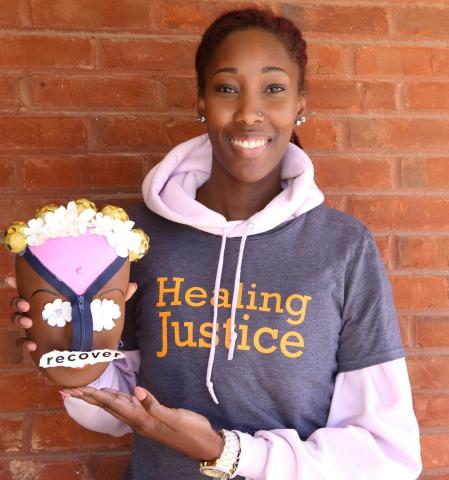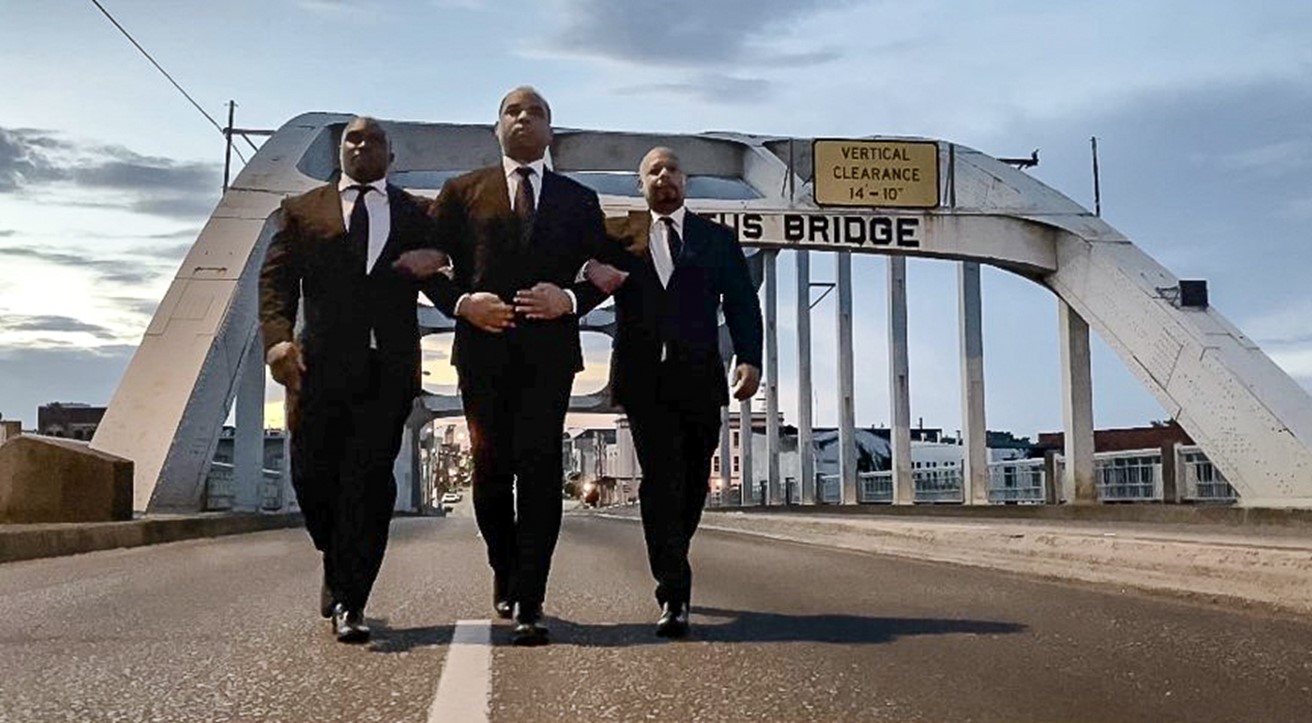Archival Notice
This is an archive page that is no longer being updated. It may contain outdated information and links may no longer function as originally intended.
Four Champions of Racial Justice
The phrase, “equal justice under law,” inscribed above the entrance to the U.S. Supreme Court, articulates a promise and a pledge made by our nation at its founding. But for Black, brown and Indigenous Americans, true justice has often been elusive.
Racial disparities in arrest and incarceration rates, and a lack of services and resources for treating trauma and victimization, have exacted a heavy toll on communities and undermine the integrity and legitimacy of the justice system. Inspired by the President’s executive order on advancing equity and racial justice, OJP is supporting a wide range of programs that are working to address these deep and long-standing inequities.
Initiatives supported by OJP are reaching survivors who have been historically underserved and marginalized, and whose experiences of victimization have sometimes failed to be properly acknowledged or addressed. OJP-supported programs are tackling the serious problems faced by BIPOC youth who are disproportionately affected by contact with the juvenile justice system. And they are working to build and strengthen bonds of trust between marginalized communities and law enforcement, drawing lessons and inspiration from the Civil Rights Movement.
Find out how four OJP-funded programs are working to advance racial equity in America and make equal justice under law ring true for us all.
1. Addressing system inequities
Communities greatly impacted and traumatized by wrongful convictions tend to be predominantly Black. By providing specialized information and tools for those adversely affected by these cases, Healing Justice works to ensure racial equity in our criminal legal system. Supported by funding from OJP’s Office for Victims of Crime, its resources include practical, trauma-informed and culturally responsive materials for police and prosecutors; opportunities to connect and engage in peer-to-peer support with others who have had similar experiences; and helpful tips for media and the public.
2. Supporting youth in Baltimore
Ensuring the children of Baltimore and their families have access to resources and assets needed to thrive and reach their full potential is the mission of the Mayor’s Office of Children & Family Success, which is supported with funding from OJP’s Office of Juvenile Justice and Delinquency Prevention. By engaging with the community and local organizations, utilizing citywide coordination of services and smart policymaking, MOCFS is able to address issues that adversely affect the youth of Baltimore and offer them the support needed for them to become successful. As the leader of the Baltimore Children’s Cabinet, MOCFS is dedicated to increasing early childhood development, increasing youth literacy, decreasing youth food insecurity and homelessness, and removing barriers to success including violence prevention and interception for boys and young men of color.
3. Building bridges between law enforcement and the community
The 54th Mile Policing Project is a national initiative designed to support law enforcement in connecting with the communities they serve and enhance relations between police and communities of color in the United States. Launched by the National Policing Institute with funding support from OJP’s Bureau of Justice Assistance, this initiative is founded upon a powerful 17-minute film documenting the journey of three police leaders retracing the steps of the historic 54-mile civil rights walk from Selma to Montgomery, Alabama. An innovative training program assists police executives in engaging in difficult conversations on race and policing, enhancing community relationships, supporting their officers and promoting diversity in the policing profession.
4. A plan to eliminate hate-based violence and support victims and survivors
Futures Without Violence is a national non-profit that builds capacity to better prevent and respond to gender-based violence. With funding from the Office for Victims of Crime, FUTURES launched Community IMPACT, a program aimed at supporting and increasing the capacity of community-based organizations to promote improved services and assistance for victims of hate crimes. By partnering with and awarding subgrants to community organizations across the country – such as the King Urban Life Center, Inc., a community center in Buffalo that offers resources and healing services to those affected by the mass shooting at the Tops supermarket in May 2022 – FUTURES aims to collaboratively develop innovative approaches and strategies to prevent hate crimes and enhance community-based responses to victims and survivors.






